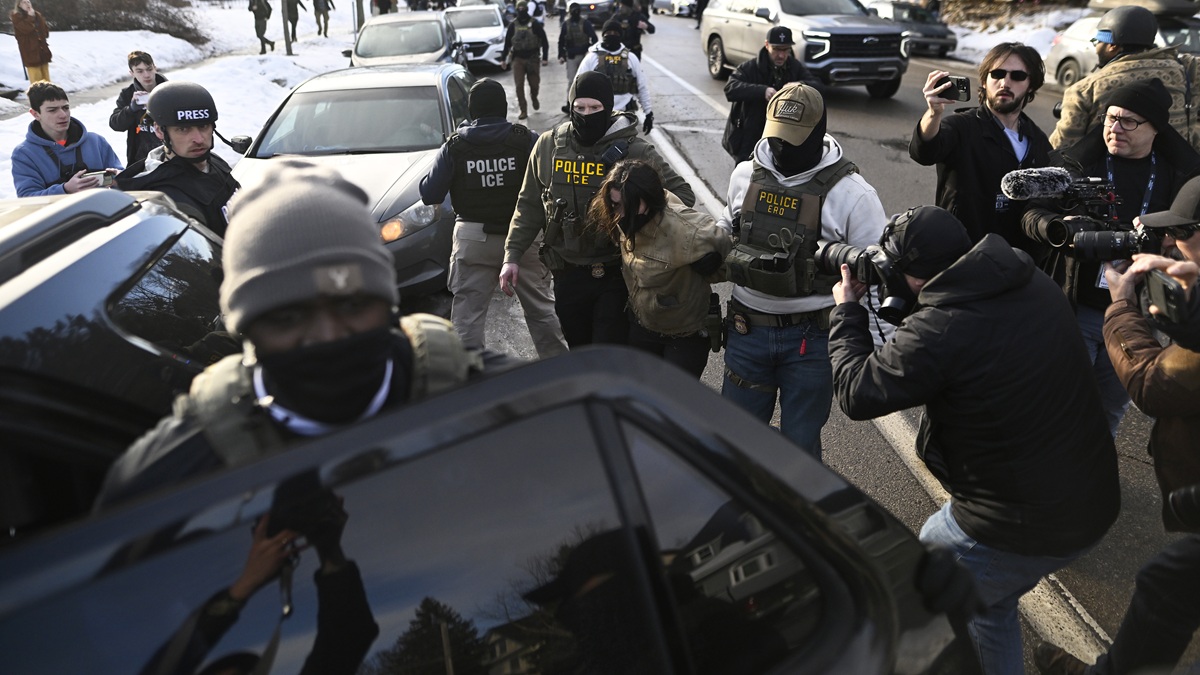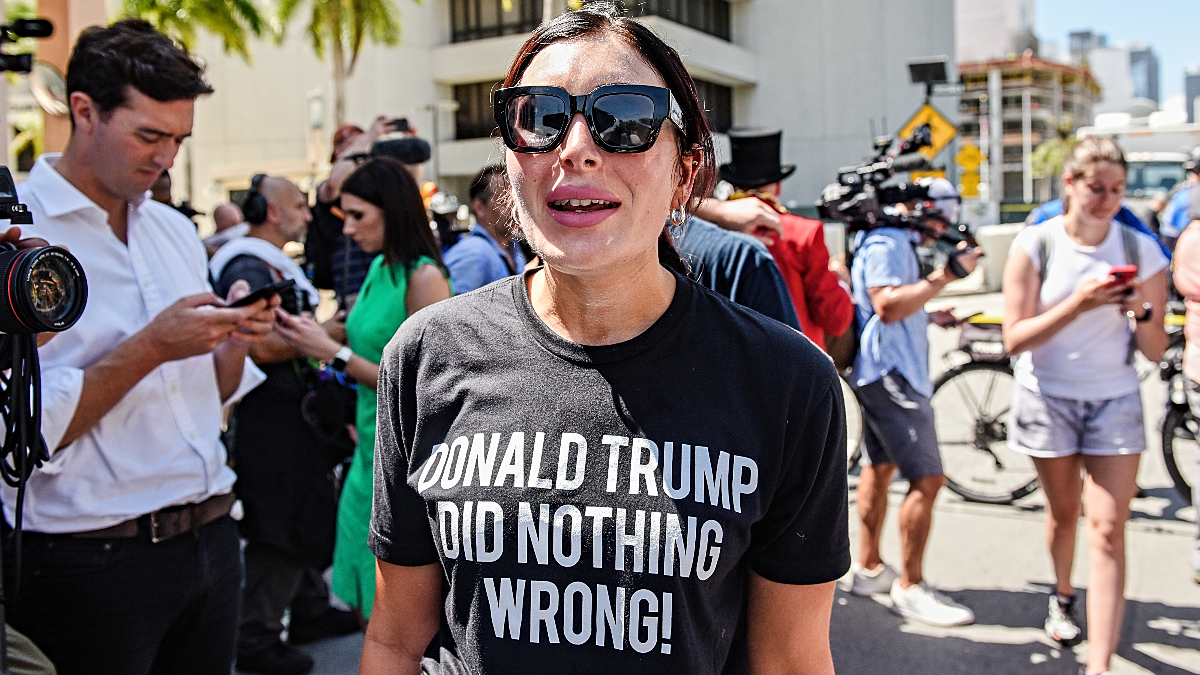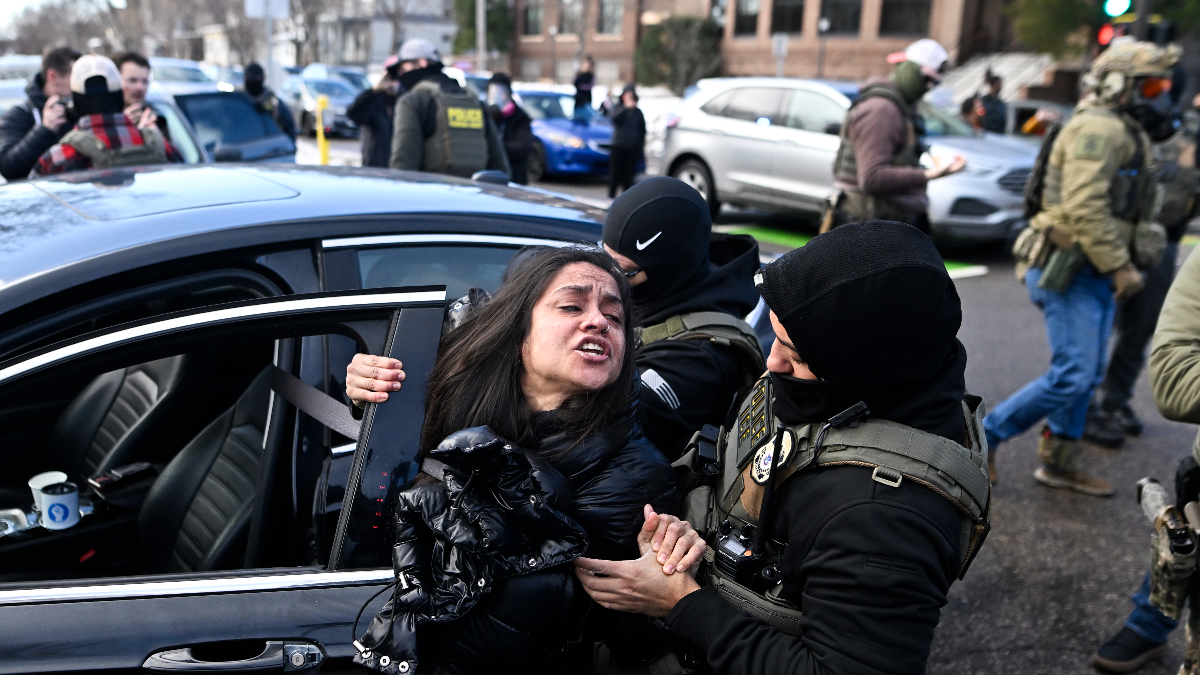
Four episodes were provided prior to broadcast.
The shock value has somewhat worn off the millennial angst fest that is HBO’s Girls. Sticking to the show’s brand of harsh realism, season 5 is a whirlwind of errant nudity, awkward sex scenes, and piss-poor decision making with a tagline that states its central foursome are “finally piecing it together.” After the four episodes I’ve seen, I’m not entirely sure that’s true – and I’m not entirely sure I want it to be true. The shock value might be gone, and repetition will set in whenever Hannah (Lena Dunham) makes yet another self-destructive, self-pitying, idiotic decision, but as far as well-written and sublimely acted trainwrecks go, Girls still has a place near the top of the pile.
As the penultimate season of the show begins, so does the day of Marnie’s (Allison Williams) wedding to borderline schizophrenic musician Desi (Ebon Moss-Bachrach) – or as Hannah puts it, “Not even a romantic comedy I would watch.” Things go south fast, thanks to Ray’s (Alex Karpovsky) continued infatuation with the bride, as well as Hannah’s tagging-along boyfriend Fran (Jake Lacy) who has an awkward meet-up with her ex Adam (Adam Driver), who may be gaining feelings for Hannah’s other best friend, Jessa (Jemima Kirke).
Like in every other year before it, the guilty pleasure of watching Girls lies in the amount of satisfaction you get from aggressively deplorable people spewing vitriol at one another. The premiere might be the show in its purest, most entertainingly frustrating form, mostly thanks to the bridezilla turn from Williams. As Girls‘ W.M.D. of insufferable irritation, Marnie is scrambling to be seen as likeable even when she’s standing on her friend’s throats. It’s essentially Marnie as she always has been, but with a magnified intensity, and Williams rocks the premiere with hilariously assured bitchiness. I’m still not convinced that any of these people are actually friends – they feel more like close-proximity argument companions – but season 5 is at least giving them more interesting reasons to fight.
Later in the opening episodes, we catch up with Shoshanna (Zosia Mamet) in Japan, living in a cotton-candy colored apartment building and easily integrating herself within the community of her new office. She’s crushing on one of her coworkers, even as boyfriend Scott (Jason Ritter) sits waiting for her to come back home to New York. The season’s third episode, with a heavy focus on Shosh’s Japan-set world crumbling around her, might be one of the best episodes of Girls yet.
It highlights the best thing about the show – succinct character arcs that could probably win a short film award somewhere – while simultaneously fitting itself into the overall Girls mythology. Shoshanna maneuvers through her job, acclimates into the new country, contemplates cheating on her boyfriend, and visits a BDSM nightclub (this is still Girls we’re talking about). All of it clicks. There’s something hypnotic and satisfying about the self-destructive time bombs all of the characters wear, and the show’s best, squirm-inducing moments come when you think that bomb is about to go off, yet it holds steady for another scene or two.

Mamet is pure gold in her scenes, mining some of the best laughs of the season so far thanks to the additional language barrier created by her hyper-articulated, breathless syntax. She isn’t the only focus of the episode, however – the season as a whole manages some of Girls‘ best character-juggling yet. The lead four get their expected time to shine, but some welcome spotlight is put on the likes of Elijah (Andrew Rannells) and his new, slightly famous boyfriend (Corey Stoll). Meanwhile, Ray gets maybe the show’s most sitcom-y B-plot yet thanks to an unspoken war between his coffee shop and a new hipster pour-over place next door called Helvetica, whose coffee Elijah drinks proudly in Ray’s own shop.
Both characters work, with touches of humor, believability, and never for a second leaning into superfluousness for one simple reason: Girls spends so much time in the proximity of such overwhelming characters that Elijah and Ray feel like the cold compress to the other leads’ fever pitch. You can file Driver under that antidote category, too. Coming off the untouchable success of Star Wars: The Force Awakens, watching him flounder and stutter through Adam’s neuroses is shell-shocking, and then completely understandable. Driver is as singularly celestial as his galactic counterpart, and he only makes the street-level drama of Girls better when he’s around.
Even though it all feels better balanced than a few of the past seasons, Hannah’s downward spiral into destruction in the opening hours of season 5 is the purest example of Girls‘ repetition fitting its stuck-in-a-rut proto-millennial themes in a not-so-fortunate way. Marnie gets married, Shosh gains new perspective, and Jessa is “done being shitty.” Hannah’s friends are growing, but she’s still finding scabs in her life to scratch at until she, and most times those around her, start bleeding. It’s a decent metaphor for the approaching-thirty characters, but with the increasingly screechy, nagging girlfriend turn Hannah takes this year, it’s the one aspect of Girls that’s hardest to find entertaining.
Thankfully, with that frustration comes a strange form of catharsis when Hannah does get called out on her shit, a satisfying treat that the writers pepper sparingly into the new season. Plenty have latched onto the series for its “relatable” characters and, as a guy, I might not be able to fully comprehend the nuance there, but I don’t think Girls is relatable so much as fantastical. It opens a door into the grotesque, cringe-inducing trials and tribulations of its leads, claiming its abrasive honesty and stratospheric narcissism as this generation’s version of truth. I myself am not entirely sure that is true, and I’m definitely not sure I want Dunham to be the voice of my generation, but the more Girls chugs along into the sunset, I’m certainly glad she’s a voice of a generation.










Published: Feb 17, 2016 04:59 pm